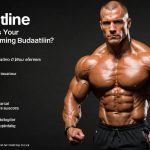Importance of Post-Game Recovery
In the realm of UK Basketball, post-game recovery isn’t just a buzzword; it is a critical component of maintaining and improving athletic performance. Athletes often push their physical limits during games, which leads to muscle fatigue, soreness, and even injuries. Effective post-game recovery can mitigate these challenges, allowing players to maintain their athletic performance across an entire season.
Unique Challenges for UK Basketball Players
UK Basketball players encounter unique challenges due to factors such as frequent travel, rigorous schedules, and the physical demands of the sport. Recovery methods that integrate rest, nutrition, and targeted muscle therapies are imperative to address the specific needs of these athletes.
Topic to read : Unlocking Speed: Strategies for UK Basketball Players to Enhance Quickness and Reaction Times in Defensive Plays
Supporting Research and Practices
Research underscores the effectiveness of proper post-game recovery techniques. Evidence suggests that structured recovery not only improves physical capacity but also reduces the risk of injury. Techniques such as hydration, adequate nutrition, and sleep, alongside active recovery strategies like stretching and foam rolling, are shown to be beneficial. These strategies aid in reducing muscle soreness and promoting faster healing, thus enhancing overall athletic performance. By investing in these recovery methods, UK Basketball athletes can sustain their competitive edge throughout the season.
Hydration Strategies
Staying properly hydrated is crucial for effective recovery after any strenuous activity or athletic performance. When your body loses fluids through sweat, it’s essential to replenish these to aid recovery techniques and enhance your overall performance.
Topic to read : Essential Muscle Groups for UK Basketball Players to Enhance Their Jump Shot Performance
A primary focus in post-game routines should be fluid intake. Hydration is not only about quenching thirst; it involves maintaining the right balance of electrolytes and fluids in your body. Drinking water is essential, but it’s important to consider best practices for post-game hydration. Ideally, consume fluids gradually over several hours rather than all at once to ensure your body absorbs them efficiently.
Electrolyte drinks come in handy when replenishing lost minerals like sodium, potassium, and magnesium. These drinks are tailored to restore balance quickly and effectively. Additionally, they provide carbohydrates that restore energy levels, further supporting recovery.
Recommended electrolyte drinks include those with natural ingredients, avoiding high sugar content. Look for beverages fortified with essential minerals and designed specifically for athletic recovery. Their benefits are numerous:
- They aid in muscle recovery by replenishing essential electrolytes.
- These drinks help maintain energy levels post-exercise.
- They contribute to faster rehydration compared to plain water.
By integrating thoughtful fluid intake and appropriate electrolyte drinks into your routine, you can optimise hydration and improve recovery outcomes significantly.
Nutritional Guidelines
A well-balanced diet is crucial for athletes engaging in intense activities like UK Basketball. Proper nutrition supports performance and recovery, emphasising specific macronutrients based on exercise needs.
Macronutrient Requirements
Carbohydrates and proteins are pivotal. Carbs replenish glycogen stores depleted during games. Proteins aid in muscle repair and growth. According to research, athletes should consume roughly 1.2 to 2 grams of protein per kilogram of body weight, adjusted for training intensity. Carbohydrate intake should be tailored to match energy expenditure, typically around 6 to 10 grams per kilogram. These guidelines optimise muscle repair and performance.
Post-Game Meal Ideas
Selecting recovery meals rich in essential nutrients ensures effective recovery. Suitable options include:
- Grilled chicken with quinoa and roasted vegetables.
- Whole-grain pasta with lean beef and a side salad.
- Protein smoothies using yogurt, fruits, and oats.
Snacks such as almond butter with banana or a turkey sandwich on whole grain can also be effective.
Timing of Nutrient Intake
The timing of nutrient consumption significantly impacts recovery. Consuming nutrients within 30 minutes post-exercise enhances glycogen synthesis and bridges protein requirements swiftly. This critical window allows athletes to initiate recovery efficiently, thereby improving overall athletic endurance and performance readiness for subsequent training or matches.
Physical Recovery Techniques
Incorporating physical recovery techniques post-exercise is vital for enhancing performance and preventing injuries. Stretching and mobility exercises play a crucial role in maintaining flexibility and ensuring optimal joint function. Regular stretching promotes muscle elasticity and reduces the risk of strains. Mobility exercises, on the other hand, focus on strengthening the body’s range of motion, improving overall physical performance.
Benefits of Stretching and Foam Rolling
Stretching is more than a cool-down routine. It aids in muscle recovery by alleviating tension and accelerating repair processes. Foam rolling, an increasingly popular practice, provides a deep tissue massage effect. This self-myofascial release reduces muscle tightness and soreness, making it an essential component of any recovery regimen. Foam rolling aids in breaking down adhesions and enhancing blood circulation, expediting recovery.
Cryotherapy and Other Recovery Modalities
Cryotherapy is another effective recovery method involving exposure to extremely cold temperatures. Known for reducing inflammation and enhancing recovery, it accelerates healing by increasing blood flow post-treatment. Alternative recovery modalities include contrast baths, which alternate between hot and cold water immersion, boosting circulation and aiding muscle recovery. Embracing these techniques can significantly enhance athletic recovery and overall wellness.
Mental Recovery Strategies
Understanding the importance of mental recovery in sports can significantly enhance an athlete’s overall performance. Mental recovery is just as critical as physical recovery and involves overcoming fatigue, stress, and mental burnout. This recovery is deeply linked with various psychological aspects that help athletes maintain a strong and resilient mindset.
Incorporating techniques such as visualization and mindfulness into an athlete’s routine can be highly beneficial. Visualization involves imagining the successful execution of a skill, which helps in reinforcing neural pathways associated with that skill. This mental rehearsal not only boosts confidence but also improves focus and reduces anxiety before competitions. On the other hand, mindfulness practices ground athletes in the present moment. Techniques like meditation and deep breathing exercises help regulate emotions, thus offering a sense of calm and clarity amidst high-pressure scenarios.
Furthermore, the role of rest and downtime cannot be overstated in the context of cognitive recovery. Engaging in leisure activities and ensuring adequate sleep are essential components that allow the mind to recuperate fully. Downtime aids in processing and retaining new information, improving learning and adaptation to new strategies. Balancing active training with sufficient rest is crucial for optimizing both mental and physical performance.
Expert Insights and Research
Athletes often seek expert opinions on recovery benefits to optimise their performance. These insights provide nuanced understanding of how recovery can be enhanced.
Interviews with Coaches
Basketball coaches emphasise the importance of tailored recovery strategies. They suggest personalised plans, recognising individual physiological needs. Key elements include balancing rest and active recovery, and the strategic use of recovery benefits like hydration, sleep, and nutrition to aid in the athlete’s overall recovery process.
Feedback from Sports Nutritionists
Feedback from sports nutritionists highlights the pivotal role of diet in recovery. They recommend high-protein intake to facilitate tissue repair. Additionally, they stress the significance of timely carbohydrate consumption post-exercise to replenish glycogen stores. Expert opinions reinforce that a personalised diet regimen amplifies recovery benefits, promoting faster injury recovery times and increased efficiency in subsequent training sessions.
Latest Research Findings
Recent studies highlight recovery advancements, showcasing innovative techniques. Research underlines the efficacy of compression garments and cryotherapy in reducing muscle soreness and inflammation. Technological innovations like wearable devices provide real-time data, further refining recovery strategies. These research findings emphasise adapting recovery protocols based on scientific evidence, making informed adjustments crucial for athletes to achieve optimal performance.
This comprehensive approach, combining expert opinions and scientific research, empowers athletes to strategically harness recovery benefits, optimising their performance sustainably.
Building an Effective Recovery Routine
Creating a well-structured recovery routine is essential for enhancing performance and ensuring consistent improvement. To start, crafting a personalized recovery plan involves identifying the specific recovery needs of an individual. This means considering the intensity and frequency of workouts, personal fitness goals, and any past injuries or limitations. Tailor recovery techniques to align with these factors for optimal results.
A structured recovery routine should incorporate a mix of activities such as stretching, foam rolling, hydration, and rest. The balance of physical activities with sufficient rest periods helps prevent overtraining and reduces injury risk. It’s crucial to maintain regularity. Consistency in recovery practices leads to better performance outcomes and reinforces good habits, ensuring that recovery becomes an integral part of any training plan.
To maximize the benefits, monitoring progress is necessary. This can be done by keeping a recovery journal or using apps to track how the body responds to various recovery techniques. Regular assessments help tweak the routine according to what’s most effective. Adjustments may include altering the time spent on recovery, trying new techniques, or intensifying relaxation methods, such as meditation or breathing exercises.
In conclusion, by meticulously planning and adhering to a recovery routine, athletes can enhance their performance and sustain long-term success.






